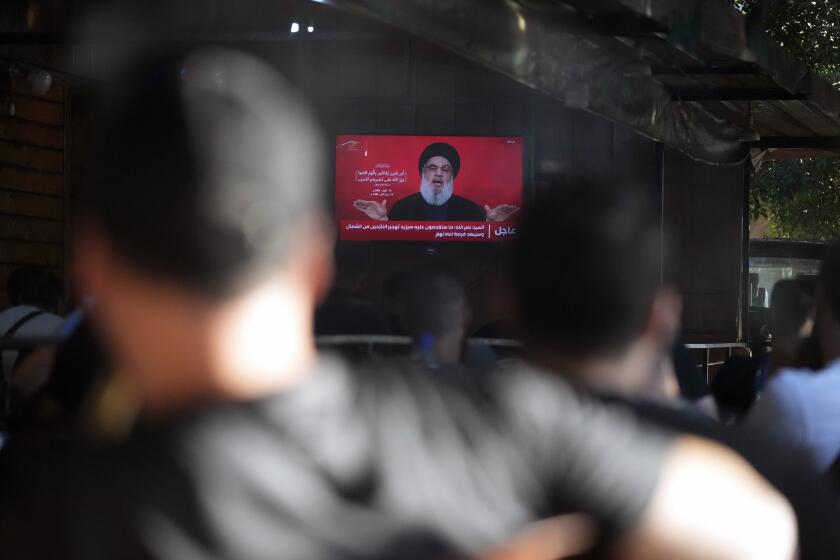Koizumi Leaves N. Korea With 5 of Abductees’ Relatives
An American who allegedly defected from the Army to North Korea 39 years ago told Japanese Prime Minister Junichiro Koizumi on Saturday that he would prefer to live in the isolated, communist state rather than face a possible U.S. court-martial.
The decision by Charles Jenkins, a 64-year-old native of North Carolina, to remain in North Korea cast a pall over Koizumi’s day trip to Pyongyang to retrieve eight family members of five Japanese abducted to North Korea in the 1970s. Jenkins’ two daughters from his marriage to Hitomi Soga, one of the five abductees who were returned to Japan in 2002, also declined to go to Japan.
By flying home Saturday night with only five of the abductees’ relatives, Koizumi triggered an angry backlash from activists who have been fighting for years to get kidnapped Japanese released from North Korea.
The Japanese prime minister spent the morning with North Korean leader Kim Jong Il, who he said had agreed to turn over Jenkins and the other relatives of abductees. But in a subsequent meeting with Jenkins and his daughters, 20-year-old Mika and 18-year-old Brenda, Koizumi could not coax them to get on the plane for Tokyo.
“I said I would make the best efforts for them to live as a family in Japan, although he [Jenkins] appeared unconvinced,” Koizumi later told reporters in Pyongyang, the North Korean capital. “He was very concerned that if he went to Japan he would be handed over to America.”
In the days leading up to his Pyongyang trip, Koizumi was reported by the Japanese media to have spoken to President Bush about lenient treatment for Jenkins, who went to North Korea in 1965 and became a fixture of the regime’s virulently anti-American propaganda machine. But no deal was struck in time for the trip.
Japanese officials said they believed the United States military would compromise on Jenkins if pressed by Tokyo.
“I believe that President Bush will say yes to Koizumi, because he is aware that this issue is very important.... He does not want to see the Koizumi government collapse over this issue and possibly be replaced by another that is less supportive of the U.S. position on Iraq,” said Ichita Yamamoto, a legislator from Koizumi’s Liberal Democratic Party.
Political analysts believe that Koizumi’s trip to North Korea -- a follow-up to a visit in 2002 -- was timed to overshadow domestic difficulties and to boost his party’s chances in legislative elections in July.
The plight of the abductees packs an emotional punch. They have inspired countless memoirs, television miniseries and even a comic strip. In a gesture reminiscent of the Iran hostage crisis, some Japanese wear blue ribbons on their lapels to show solidarity with the abductees.
The five released after Koizumi’s 2002 visit to North Korea were Jenkins’ wife and two married couples.
Returning Saturday night on the plane from North Korea were five children of abductees, ranging in age from 16 to 22. They were wearing suits and grinning broadly as they were ushered into a Tokyo hotel for a reunion with their parents, but the happy moment was marred by the fact that Soga’s family was not among the group.
“This is the worst possible outcome. We feel betrayed by Koizumi,” said Shigeru Yokota, the father of one of the abductees and a leader of their advocacy group. He said they were also upset that Koizumi had not done more to get information about 10 other Japanese abductees whose whereabouts remained unknown.
Soga was more conciliatory. She said she would consider an offer by Koizumi to arrange for a reunion with her husband in Beijing so that they could discuss their future in a neutral setting.
“I’ll try to pull myself together. This outcome doesn’t mean that I will never see my family. I believe it will happen somewhere and sometime soon,” said Soga, 44, a nursing aide.
Soga was snatched in 1978 as she was shopping with her mother and brought to North Korea to train future spies in the Japanese language and customs. She and Jenkins, her English teacher, married in 1980.
Back in North Carolina, Jenkins’ relatives said they were also disappointed that the family did not leave North Korea, but said they understood.
“He’s scared. He’s been there 39 years and his daughters have been raised all their lives in North Korea. They don’t know anything else,” said Shir-Lee Hyman, Jenkins’ niece by marriage.
According to Japanese who have met Jenkins, the former GI has said that he will leave only after 2005, on the belief that by then a statute of limitations for desertion will have expired. But U.S. military officials say that there is no such time limit for prosecuting desertion.
More to Read
Sign up for Essential California
The most important California stories and recommendations in your inbox every morning.
You may occasionally receive promotional content from the Los Angeles Times.










